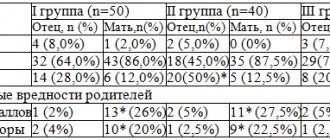Pyelonephritis is an inflammation of the renal pelvis, that is, the cavity in the kidneys in which urine collects. This is a rather dangerous disease, which, if not properly treated, can lead to dire consequences, especially for a pregnant woman and unborn child. How does pyelonephritis affect pregnancy?
Pregnancy and pyelonephritis: the essence of the problem
The disease is characterized by inflammation of the kidneys. Pathogens: pathogenic bacteria, E. coli, fungi, protozoa, viruses. Usually one organ is affected, but there is also a bilateral form.
Girls and women, especially pregnant women, are susceptible to the disease. This is explained by anatomy: pathogenic organisms penetrate more easily through a wide and short urethra.
At risk are patients suffering from diabetes, HIV, gastrointestinal diseases, tumors in the genitourinary system, and abnormalities of the genitourinary system. Any foci of infection and poor personal hygiene increase the likelihood of developing acute pyelonephritis.
Why does pyelonephritis worsen during pregnancy?
Exacerbation of pyelonephritis often coincides with pregnancy, because the growing fetus puts pressure on the bladder, expanding the upper ureteral tract. As a result, the outflow of urine is disrupted, and pathogenic bacteria are activated in the accumulated urine.
- The main provocateurs of the disease are bacteria (enterococci, staphylococci, E. coli) that live on the mucous membranes of internal organs. They enter the kidneys through the urinary tract, settle there and provoke inflammation.
- At risk are women suffering from chronic cystitis, bacteriuria, urethritis and other diseases of the genitourinary system.
Contributing factors include decreased immunity, lack of vitamins, and pregnancy-related stress.
Pyelonephritis cannot be ignored, because it affects the development of the fetus.
Causes of pyelonephritis in pregnant women
Doctors point to factors for the development of the disease in expectant mothers:
- Hormonal background. It changes from the first days after conception. The ureters lengthen and expand, their tone decreases - the risk of infection increases;
- Increased volume of the uterus. It puts pressure on the ureters - the situation is aggravated with multiple pregnancies or with a large fetus;
- Dilation of the pelvic veins. The vessels put pressure on the ureters, disrupt the outflow of urine - the pelvis expands;
- High estrogen levels. Microbes feel comfortable in such an environment.
Pyelonephritis in pregnant women can develop at any stage. That is why, from the first trimester, a woman is sent for laboratory tests - they allow her to monitor her kidney function and diagnose abnormalities in a timely manner.
Forms of pyelonephritis in pregnant women
There are 4 forms of the disease.
By duration
Acute pyelonephritis in pregnant women develops unexpectedly. On average it lasts up to 3 weeks. There are serous, purulent and necrotic types.
Chronic pyelonephritis in pregnant women develops as a result of untimely or improper treatment of the disease of the first form. It is asymptomatic and relapses occur periodically.
There are several phases of chronic pyelonephritis in pregnant women: active (symptoms are acute), latent (no pronounced symptoms, laboratory tests do not reveal the disease), remission (complete disappearance of symptoms). The possibility of relapse remains. Under unfavorable conditions, they occur 1-2 times a year.
According to development conditions
Primary - urine is excreted normally from the body, since the urinary tract retains its functionality.
Secondary - the disease develops against the background of another pathology. For example, with abnormally mobile kidneys, the presence of kidney stones. Kidney problems during pregnancy appear as a complication of the primary disease.
By location and route of infection
Unilateral - the pathological process occurs in one kidney; with bilateral, both kidneys become inflamed during pregnancy.
By route of infection: they are most often infected through the hematogenous route. Less commonly diagnosed is urogenic, or ascending - through the urethra, bladder.
Gestational pyelonephritis in pregnant women
Doctors distinguish this form of the disease separately. They call it that because it occurs during pregnancy. Most often diagnosed in the second trimester. The condition is dangerous - it threatens the health of mother and baby. Requires emergency treatment of pyelonephritis in pregnant women.
In women, the interstitial tissue, kidney tubules, and pelvicalyceal system are affected and sclerosed. Ignoring the disease leads to damage to the vessels and glomeruli of the kidneys, the tubules are compressed, and the concentrating ability of the kidneys is impaired during pregnancy.
Against the background of the ongoing processes, renal hypertension begins - it is diagnosed in 20% of expectant mothers with renal failure.
The most dangerous periods are 32 - 34 and 39 - 40 weeks. By this time, the uterus reaches its maximum size; by the end of gestation, the baby’s head is pressed against the entrance to the pelvis.
90% of expectant mothers with pyelonephritis are diagnosed with gestosis, a severe complication of pregnancy. Blood pressure rises, swelling appears, the fundus of the eye changes, proteinuria develops - a serious and dangerous condition for the mother and child.
A little about pyelonephritis
Pyelonephritis is a serious disease consisting of inflammation of the tissues of the pelvis and renal cup. The disease is diagnosed in 1% of the planet's population, and more than 80% of people experience it again. In women, the pathology occurs 6 times more often than in the stronger sex. Every third case has a purulent form.
Pregnancy leads to a decrease in immunity, so pyelonephritis is diagnosed in 12% of women expecting a baby. The cause of the disease in 95% of cases is a gram-negative rod, in 5% - staphylococcus.
Symptoms of pyelonephritis in pregnant women
The gestation period is characterized by an acute form of the disease. It begins suddenly, with severe symptoms. Here are the common signs:
- temperature rises to 38°C and above;
- a woman complains of chills and fever;
- pain in the lower back - on the side of the affected kidney or on both sides;
- kidney pain during pregnancy;
- dysuria: painful or frequent urination;
- pale skin.
Against the background of intoxication, headaches, nausea and weakness plague. The portion volume of urine increases and it darkens.
In the 1st trimester, women complain of lower back pain, which radiates to the lower abdomen and external genitalia. The pain is similar to renal colic: severe, sharp.
In the 2nd trimester, the pain is less pronounced. Dysuria is more typical for this period. The expectant mother finds relief when changing position - pressing her legs to her stomach.
Complications of kidney inflammation
Untimely or poor-quality treatment can lead to serious complications. Sepsis, carbuncle or scarring of the kidney may begin.
Consequences include renal failure and hypertensive crises.
The acute form of pyelonephritis can develop into a more severe form - emphysematous or xanthogranulomatous. In the first case, the mortality rate of patients is more than 40%, in the second the lesion is so strong that upon histological examination it is difficult to distinguish it from a malignant tumor.
Risk of kidney problems during pregnancy
The inflammatory process poses a threat to the health and life of the mother and fetus and affects the process of bearing a child. The condition progresses and renal failure develops. Without a timely visit to a nephrologist, a woman risks premature birth and miscarriage.
There is a risk of developing urosepsis - bacteria from the affected kidney enter the bloodstream and infect the entire body. The condition is serious.
In rare cases, nephrotic syndrome is possible. It is accompanied by severe swelling. The concentration of protein in the urine increases, and its level in the blood plasma drops sharply, cholesterol rises.
The condition is also dangerous for the baby. He may be born with low body weight, suffer from oxygen starvation, and may have intrauterine infection. Subsequently, such a baby may lag behind in physical development and have neurological problems.
The most dangerous consequence is intrauterine fetal death.
Diagnosis of pyelonephritis in pregnant women
The initial examination is performed by a gynecologist, then he refers the patient to a nephrologist. The specialist prescribes laboratory and instrumental studies.
As part of laboratory tests, a woman undergoes blood and urine tests:
- Blood test - general, biochemistry. Allows you to identify inflammatory processes in the body. The patient will have a low hemoglobin level;
- Urinalysis - general, bacteriological. Identifies the pathogen and determines the protein level.
As part of instrumental studies, a woman undergoes an ultrasound of the kidneys and chromocystoscopy:
- An ultrasound examination evaluates the condition of the kidney tissue structure. Shows changes in them. For example, it visualizes if the renal pelvis is dilated during pregnancy;
- Chromocystoscopy is a modern endoscopic method. Allows you to identify disorders in the urinary and secretory functions of the kidneys. It is based on urine staining and is performed under the control of an ultrasound machine.
Complications of pregnancy in the third trimester: Gestational pyelonephritis
Gestational pyelonephritis is an inflammation of the interstitial tissue of the kidneys involving the pelvis and calyces. The disease most often occurs in the second trimester of pregnancy, when the uterus compresses the ureters and interferes with the outflow of urine. The occurrence of gestational pyelonephritis most often occurs in women with pathogenic flora in the vagina, urethra and cervix, STIs, chronic pyelonephritis and other inflammatory foci of the pelvis.
The causative agent of gestational pyelonephritis is parietal pathogenic gram-negative flora (E.coli, Klebsiella, Proteus, enterococci). The brush border promotes the fixation of microorganisms to the epithelium of the urinary tract. In addition, microorganisms have the ability to form L-forms and “evade” the immune system. In the presence of chronic (often previously unrecognized and untreated) pyelonephritis, the latter worsens in the first trimester in 10%, in the second and third - in 50% of cases.
The clinical picture is very characteristic: chills, increased body temperature, intoxication, lower back pain, dysuric phenomena. Pasternatsky's symptom (tapping on the lower back in the kidney area) is not always positive. Blood tests reveal leukocytosis (11.0 * 109/l), neutrophilic shift to the left. Urine tests show leukocyturia. In the Nechiporenko test, the number of leukocytes exceeds 4.0 • 109/l in 1 ml of urine. In acute pyelonephritis, there is bacteriuria in the urine (105 microbial bodies in 1 ml).
Against the background of pyelonephritis, there is a high risk of developing gestosis. It should be emphasized that such combined gestosis is especially difficult, since it begins early - in the second trimester of pregnancy, has a long, asymptomatic course, and does not respond well to complex treatment.
Treatment. Penicillins and cephalosporins are used to treat pregnant women. The course of treatment is at least 3 weeks. Treatment is carried out in the II and III trimesters of pregnancy.
All penicillins have the same immunogenic specificity, therefore, if you are allergic to any one of them, other penicillin drugs should not be prescribed.
During pregnancy, treatment with tetracycline and chloramphenicol antibiotics, as well as streptomycin, is contraindicated due to the risk of their adverse effects on the fetus.
If an anaerobic infection is detected, it is recommended to use lincomycin, clindamycin in the doses indicated in the instructions for pregnant women, as well as metronidazole (Trichopol, Klion) orally 0.5 g 3 times a day.
In cases of severe disease, one of the drugs from the cephalosporin group is prescribed intravenously and intramuscularly along with an antibiotic from the aminoglycoside group (gentamicin 80 mg 2-3 times intramuscularly) and metronidazole 0.5 g 3 times into a vein by drip. If metronidazole is not available, you can prescribe lincomycin 0.6 g 3 times a day into the muscle. This complex of drugs is used for 3-4 days, then reduced.
For severe infections, the use of multiple drugs is justified in the following cases::
- if the pathogen is unknown;
- if the sensitivity of the pathogen to antimicrobial agents varies;
- If waiting for culture results and determining the sensitivity of the pathogen increases the risk of complications and can lead to death.
Severe infectious processes, including pyelonephritis, are successfully treated with antibiotics from the carbapinem group: the drugs Thienam (contains imipenem and celastatin sodium) and Meronem (contains meropenem). These are broad-spectrum antibiotics.
According to the spectrum of antibacterial activity, each drug corresponds to the combination of cephalosporin + aminoglycoside + metronidazole.
In addition to antibiotics, antibacterial drugs are used in the second and third trimesters of pregnancy. To enhance the therapeutic effect, they are combined with antibiotics. Such drugs include 5-NOK, nevigramon, furagin.
5-NOK - nitroxoline - is a drug that selectively acts on pathogens of urinary tract infections (gram-positive and gram-negative).
Negram, Nevigramon - nalidixic acid preparations have a high chemotherapeutic effect, suppress the growth of E. coli, Proteus, Klebsiella.
Nevigramon does not affect the action of other antibacterial compounds. Before giving birth, it is recommended to discontinue the drug, as it can cause an increase in intracranial pressure in the fetus. If kidney and liver function decrease, this chemotherapy drug is contraindicated.
Of the nitrofuran drugs during pregnancy, furagin is the most acceptable.
To achieve the greatest effect in the treatment of pyelonephritis in pregnant women, it is recommended to begin treatment with the administration of furagin, since drugs of the nitrofuran series are determined in maximum quantities in the interstitial tissue of the kidneys and lymph. Long-term treatment with nitrofurans in the presence of renal failure can be complicated by polyneuritis. Despite the widespread use of nitrofurans and nitroxoline, the sensitivity of the urine flora of patients with pyelonephritis to them remains for almost two decades.
It should also be remembered that the microflora isolated during urine culture is not always the true causative agent of inflammatory disease in the kidneys, especially with a unilateral process. Therefore, an antibiogram obtained by culture of bladder urine plays only a supporting role in the choice of antibiotic therapy. To identify the true causative agent of the inflammatory process in the kidneys, they resort to selective examination of urine collected using bilateral ureteral catheterization, which has not only diagnostic but also therapeutic value (elimination of impaired urine outflow).
For the purpose of detoxification, intravenous drip administration of low molecular weight solutions (400 ml of hemodez, 200-300 ml of rheopolyglucin) is indicated. These drugs have the ability to improve the elimination of toxins through the kidneys, unblock the macrophage system, and directly bind toxins.
Treatment methods for pyelonephritis in pregnant women
The goal of therapy is to reduce the manifestations of the disease and eliminate the inflammatory process. The treatment regimen is prescribed individually. The doctor takes into account the form of the disease, the severity of symptoms, the general condition of the expectant mother, and the trimester.
Drug therapy is indicated. The nephrologist selects drugs that are safe for mother and baby. Effective:
- Anti-inflammatory - stop the inflammatory process;
- Antispasmodics - relieve muscle spasms;
- Painkillers - eliminate pain;
- Antibacterial - to suppress the pathogen. Antibiotics of the penicillin and cephalosporin series are prescribed;
- Uroantiseptics - have an antimicrobial effect;
- General strengthening vitamins.
The patient may be prescribed a sedative or herbal medicine.
Non-drug treatment of pyelonephritis in pregnant women
Physiotherapy, catheterization, and detoxification are effective.
is helpful . A woman takes a knee-elbow position up to 10 times a day. Stays in it for 10 - 15 minutes. The “cat” pose reduces pressure on the urinary tract, improves urine flow, and eliminates stagnation.
Bed rest is indicated for severe pain and weakness. It is not recommended to lie down for more than a week - get up and move as much as you can. This is an excellent prevention of urinary stagnation and relapse.
Maintain drinking regime. Optimally - 2 - 3 liters of liquid. This should be regular drinking water without gas. The exception is arterial hypertension, swelling.
If your kidneys hurt during pregnancy, sleep on your left side as recommended by nephrologists.
Expectant mothers with an acute form of the disease are admitted to a hospital. This measure allows you to reduce the risk of complications and, if necessary, provide emergency assistance to the patient.
In case of a chronic form of the disease, normal tests and the patient’s well-being, treatment is carried out at home. The doctor gives general recommendations. If necessary, prescribes drug therapy.
Gestational pyelonephritis (Pyelonephritis during pregnancy)
The main goals of therapy for inflammation of the collecting systems of the kidneys are relief of clinical symptoms, combating the infectious agent that caused the disease, improving the passage of urine, eliminating its stagnation, and preventing possible complications. The standard treatment regimen for a pregnant woman with pyelonephritis usually includes the following groups of drugs:
- Antibacterial agents
. Prior to receiving the results of flora sensitivity tests, empirical antimicrobial therapy is prescribed. In the first trimester, inhibitor-protected penicillins are recommended; from the second trimester, the use of cephalosporins and macrolides is allowed. During the entire gestational period, the use of fluoroquinolones is prohibited, and in the first and third trimesters - sulfonamides. Subsequently, antibiotic therapy is adjusted taking into account bacterial culture data. Combination with herbal uroantiseptics is possible. - Detoxifying and desensitizing drugs
. To remove toxic metabolic products that accumulate when kidney function is impaired, infusion therapy with intravenous drip administration of low molecular weight dextrans, albumin, and water-salt solutions is actively used. To prevent possible allergic reactions to the administration of antibacterial drugs, agents with an antihistamine effect are used (non-selective and selective histamine receptor blockers, mast cell membrane stabilizers, etc.).
An important role in the treatment of pyelonephritis is played by positional drainage therapy, aimed at restoring the passage of urine - the pregnant woman is recommended to position herself on the healthy side or the knee-elbow position. To speed up the effect, it is possible to introduce antispasmodics. If there are no results, the pelvis is catheterized through a ureteral stent, catheter, percutaneous puncture or open nephrostomy. To influence individual links of pathogenesis, angioprotectors, saluretics and non-steroidal anti-inflammatory drugs are prescribed, which inhibit the secretion of inflammatory mediators and reduce pain.
Surgical treatment is indicated in the presence of purulent-destructive variants of the disease (apostematosis, abscess, carbuncle). Preference is given to organ-preserving operations - opening of abscesses, excision of carbuncles, decapsulation of the affected organ. In exceptional cases, with a high risk of severe infectious and septic complications, nephrectomy is performed. In most cases, pregnancy with pyelonephritis can be saved. The indication for termination of gestation is the complication of the disease with severe gestosis, acute renal failure, severe fetal hypoxia. The optimal method of delivery is natural childbirth covered with antispasmodic drugs to prevent ureteral occlusion. Caesarean section is performed strictly according to obstetric indications due to the increased likelihood of infectious complications after surgery. After childbirth, it is recommended to get up early to improve urine flow; it is possible to prescribe long-acting sulfonamides.
Prevention of pyelonephritis in pregnant women
The most effective preventive measure is early diagnosis of pathology. Listen to your body and how you feel:
- If you feel unwell, change, or have alarming symptoms, consult a gynecologist;
- Get tested, undergo examinations that your doctor refers you to;
- Prepare for conception in advance. Cure urogenital infections;
- In case of multiple pregnancy, large fetus or polyhydramnios, treat bacteriuria as early as possible;
- Lead a healthy lifestyle. Stick to the drinking regime, eat healthy food;
- Avoid hypothermia;
- Maintain personal hygiene. This is one of the causes of infection in women;
- Take care of your psycho-emotional state. Avoid stress - it reduces immunity;
- Rest - it restores the body.
Don't refuse medical help. Take medications prescribed by your doctor. If hospitalization is necessary, do not write a refusal - agree. This can save lives - for you and the baby.
Remember: expectant and new mothers who gave birth to a baby 1 - 2 weeks ago are at risk. During this period, the woman’s body is weakened and complications may appear. Follow your doctor's recommendations for prevention - and everything will be fine.
How is pyelonephritis diagnosed?
The difficulty in diagnosing the disease lies in the fact that it practically does not manifest itself at all.
- Primary pyelonephritis does not affect urodynamics (urine excretion) or the condition of the kidneys. It is asymptomatic, and a woman can safely pass through the entire pregnancy without suspecting a kidney infection.
- Secondary pyelonephritis occurs against the background of existing diseases of the genitourinary system and is accompanied by inflammation. The peak of exacerbation occurs at 22-29 weeks, when corticosteroid hormones are activated. Only in 10% of cases pyelonephritis does not enter the exacerbation phase.
Symptoms of the disease appear within a few days, and treatment should be carried out during this period. Otherwise, after 10-20 days, irreversible changes occur in the kidneys, the infection spreads to the fetus, which leads to irreparable consequences.
Chronic pyelonephritis is accompanied by changes in the tissues of the kidney; functionally active parenchyma is replaced by connective tissue that does not play any role. The disease also additionally causes kidney failure and arterial hypertension (high blood pressure).
Diagnosis of pyelonephritis is hampered by limited research methods due to pregnancy. Palpation is not suitable because the uterus puts pressure on neighboring organs. Endoscopy, radiography and MRI are dangerous for the fetus. The only informative methods are ultrasound diagnostics (pelvic ultrasound) and urine analysis.







